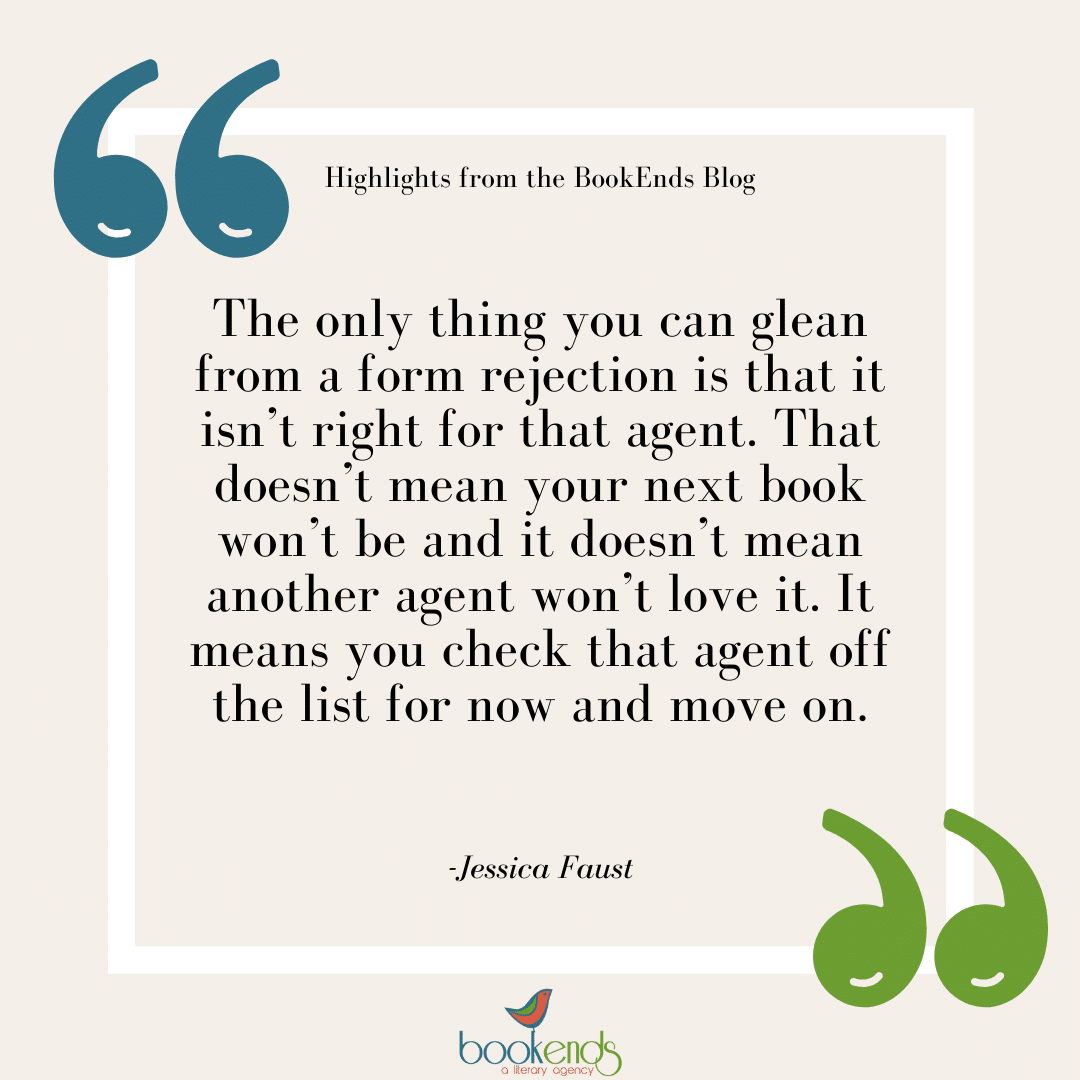The Frustration of a Form Rejection
- By: Jessica Faust | Date: Mar 23 2021

I’ve addressed this a few times on the blog and we’ve even discussed it in a YouTube video, but it is something always worth talking about–the frustration authors feel from form rejections.
I get it, it’s so frustrating when you’ve spent so much time on your manuscript and query letter only to hear, “thanks, not for me,” in a form rejection. The problem I’ve encountered after 20 years of sending rejection letters, is that all too often that’s the very best answer I have.
The Struggle to Personalize Rejections
I have about 10 query rejection options in my queue. They range from you might want to check your word count to suggesting that researching what makes a good query would do you good. I’ve also tried things like the query is good, but the idea isn’t for me, and I don’t represent this genre.
Sometimes those work, but sometimes your query checked off all the boxes–it was a decent enough query, the word count was right, and I represent that genre, but at the end of the day, I just didn’t want to read your book.
Imagine if in the month of January someone dropped off 750 books at your house. They said, pick what you want to read and let us know. You have, according to your own rules, 6-8 weeks to make a decision. In the meantime, you know that in February someone else will be dropping off another 750 books for you to choose from, and they will come again in March.
When you know you have thousands of books coming your way you quickly become very discerning about how you want to spend your time. You know what you like, you know what you don’t, and you know those books that are starting to feel like everything else you’ve read before. They just don’t light you up. That doesn’t mean you can’t put them aside for your best friend or your mom, but even their piles are getting big so it might just be better to return them.
What to Glean from a Form Rejection
The only thing you can glean from a form rejection is that it isn’t right for that agent. That doesn’t mean your next book won’t be and it doesn’t mean another agent won’t love it. It means you check that agent off the list for now and move on. You move on to the next agent and you move on to writing your next book.

Though it’s always great to get a request for more, I appreciate a form letter that lets me know where I stand with an agent. What’s hard is when a writer gets requests for partials or fulls and never hears back from the agent again. Even a three word rejection, ‘It’s a no,’ would be better than that kind of ghosting. So thank you for being a considerate agent. As far as rejections go, Bookends Literary is high on my list because of this courtesy.
Thank you for that image at the top of this post. I’m going to print it out and hang it above my desk! <3
Thanks for keeping your philosophy out there. So many agents don’t feel the need to do that and it leaves the poor authors hanging. A rejection is bad enough as it is, but my experience has been about 52% of my queries just remain unanswered, and form rejections are much better than that. Having 10 different options seems like a good way to save your time but still be helpful, and laying out your methods so authors know what to expect is professional and appreciated. Stay afloat in that sea of literature!
As I am currently in the querying process, this was a very timely post. Thank you for the insight and encouragement.
I wrote a political thriller and I can’t find any agents who represent this sub/genre. I looked at the acknowledgment pages in the books but their agents are not taking on new authors . Any suggestions would be greatly appreciated. Thanks so much.
To be honest, I prefer a “thanks but not for me” because then there is no confusion about whether or not there is an element of personalisation. I’ve seem writers think a form rejection that said (for example) “the characters didn’t resonate with me” angst over how to improve their characters – but if you look on Query Tracker you learn that’s the rejection letter every writer receives.
This is one of those situations where I don’t think there is the perfect way to write a rejection letter. While I am happy with “thanks but no”, others find that too harsh. I think the one thing all writers agree on is hearing anything is better than never hearing!
[…] https://bookendsliterary.com/the-frustration-of-a-form-rejection/ […]